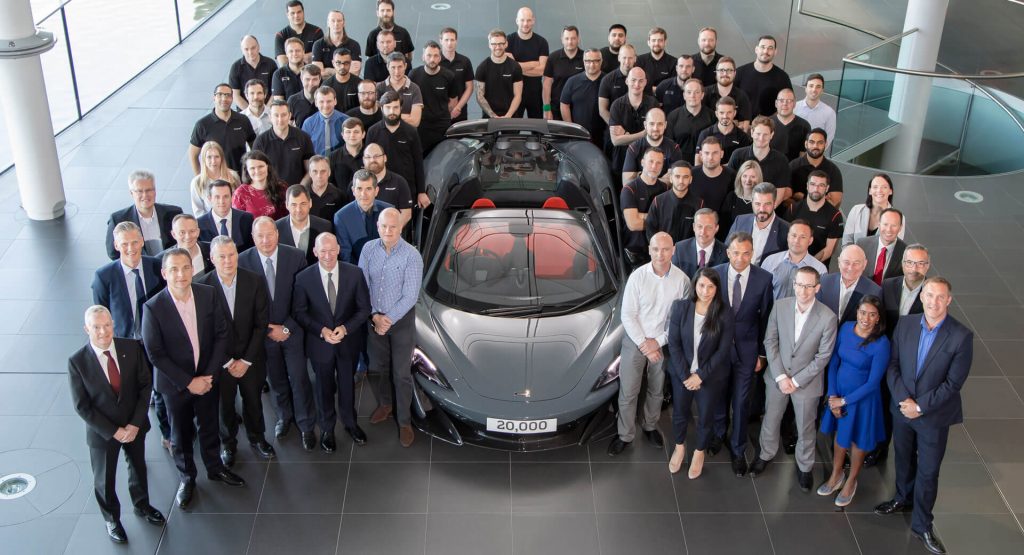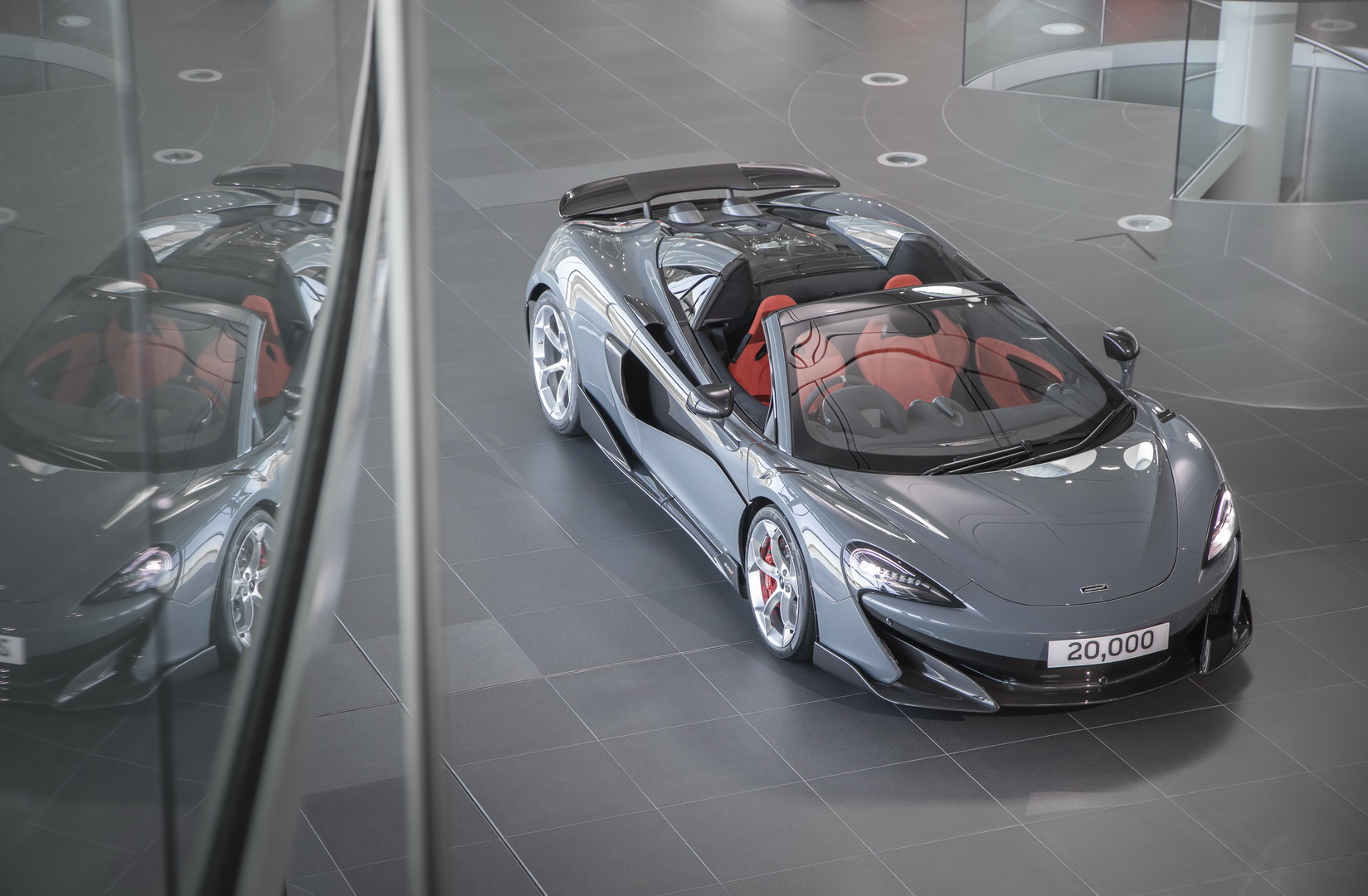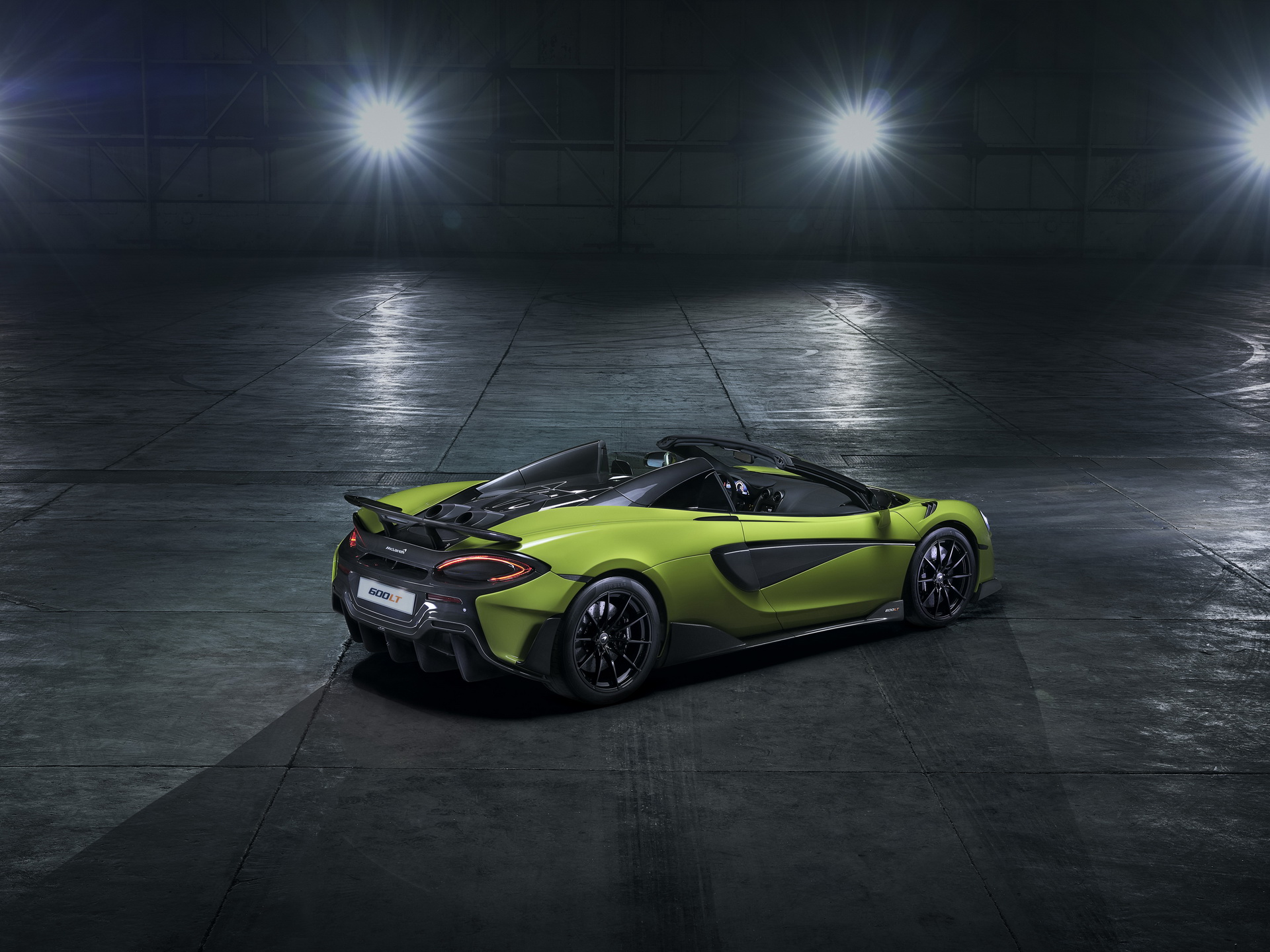McLaren achieved a significant milestone on May 13, when the 20,000th car left the assembly lines in Woking.
The model in question is a 600LT Spider, finished in Chicane Grey, and was celebrated by the staff at the company’s production center.
Unveiled in the beginning of the year and launched shortly after in global markets, the 600LT Spider boasts a 600 PS (592 hp / 441 kW) and 620 Nm (457 lb-ft) of torque engine. The 3.8-liter twin-turbo V8 is paired to a 7-speed dual-clutch automatic transmission, which rockets it to 100 km/h (62 mph) in 2.9 seconds and up to 324 km/h (201 mph).
Also Watch: Chris Harris Reviews McLaren 600LT, Finds It More Rewarding Than The Senna
“Achieving our 20,000th car built is an important milestone for McLaren Automotive”, said CEO Mike Flewitt. “Last year, we hand-assembled just over 4,800 cars, and we plan to maintain around 5,000 cars a year for the immediate future. While demand for our products continues to grow, we aim to balance that to maintain exclusivity for our brand and customers. It is fitting that we celebrate this achievement with a 600LT Spider, which has been a huge success for us.”
Aside from marking the milestone, the British automaker also announced that all production slots for the 600LT Coupe have been spoken for. This means that anyone interested in buying the fixed-roof LongTail model will have to turn to the used car market.
In the United States, the 600LT Coupe had a $240,000 starting price. It uses the same powertrain combo as the rest of the Sports Series models, has an identical 0-100 km/h (0-62 mph) acceleration to the 600LT Spider and a slightly higher top speed, at 328 km/h (204 mph).
The 600LT Spider is still up for grabs in selected markets, with prices kicking off from $256,000 in the U.S., £201,500 in the UK and €250,000 in Germany.
The McLaren Production Center started its operations in July of 2011. It employs more than 2,300 people and thanks to the introduction of a second production shift three years ago, to meet the rising global demand for McLarens, production has doubled, from around 10 to more than 20 cars a day.





